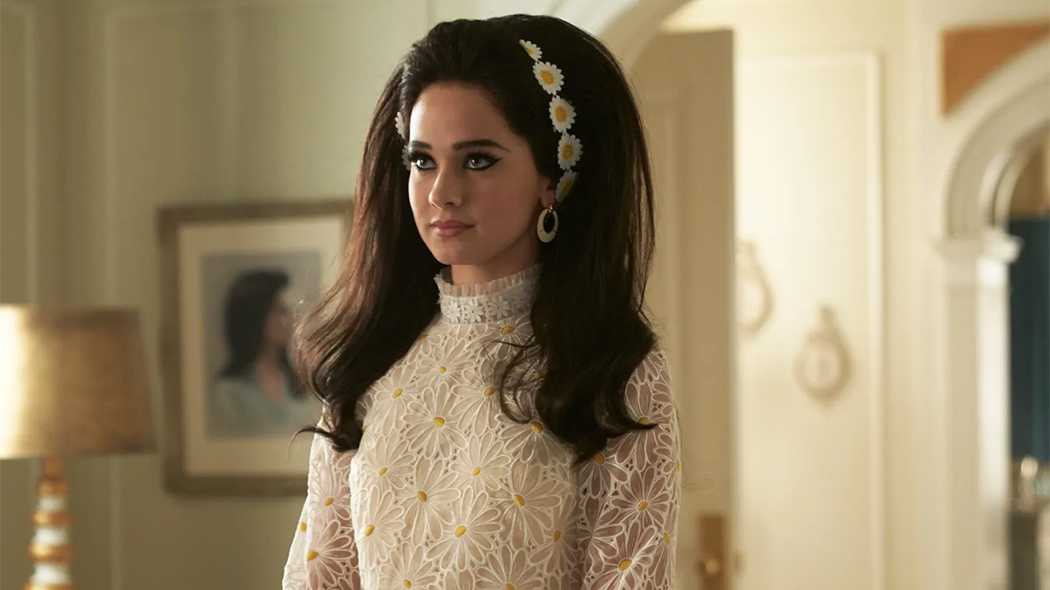
Review: Priscilla – In a gilded cage
Directed by Sofia Coppola
Starring Cailee Spaeny, Jacob Elordi
7/10
Based on the memoir Elvis and Me and with Priscilla Presley as executive producer, you can be confident Priscilla is a fairly accurate account of the relationship from her perspective. This film is about their fourteen years together, from their meeting (at ages 14 and 24!) at a West German army base to their separation. We see none of Priscilla’s childhood to help us understand her, and no aftermath, leaving a somewhat abrupt ending.
Written and directed by Sofia Coppola, Priscilla has that slow burn that Coppola’s films are known for. When Elvis is present, the action speeds up. Yet when he is away, the pace of the film reflects Priscilla waiting for his return. There are many long shots of her sitting on lounges, of draperies, of writing letters, and trying to avoid reading the gossip columns. She was so lonely, not allowed friends, a job, or any independence—”I need you to be home when I call,” Elvis commands. Just as Baz Lurhman’s Elvis was a dizzying, distracting whirlwind to reflect his life, Priscilla is purposely slow to reflect her life waiting in the wings.
It is easy to see why a naive 14-year-old girl away from home fell for this famous, charming, gravelly-voiced Elvis. The courtship alternates between whirlwind glamorous trips playing dress-ups in Vegas and the tedium of high school math class. Yet it doesn’t answer a key question posed by Priscilla’s father: “Why my daughter?”
So much of Priscilla requires the audience to sit in discomfort. How could the parents agree for their 16-year-old daughter to move to Graceland? How can Elvis give this child drugs so casually? Why does no one take her away from this predator? Why does she not leave after each affair and abuse? The film makes it clear that this was an abusive and controlling relationship. Elvis chooses every aspect of her life to run to his timetable and preferences, and he emotionally or physically abuses her at any sign of an opinion. Even the proposal, “We are going to be married,” is a statement, not a question. It is not an easy film to watch.
From a filmmaking perspective, it pays excellent attention to the 60s period detail. The costumes and set portray her gilded cage exceptionally well, with close-ups of manicured feet on plush carpets. The interspersed grainy archive footage gives the intimacy of home videos.
Finally, the best decision in this film is the casting and brilliant acting of two relatively unknown actors. Cailee Spaeny, as Priscilla, is so young, so small, and so childlike (despite actually being the same age as her co-star), that the corruption of her innocence hurts all the more. Australian Jacob Elordi is a tall, devastatingly handsome, brooding Elvis who quickly becomes the manipulative bad guy of this film.
Some critics (Elvis’ late daughter Lisa Marie included) have argued against this negative portrayal of Elvis. Is it fair to judge someone who lived 60 years ago against modern values? Can a one-sided biopic be accepted as the truth when Elvis is no longer around to defend himself? Or do we acknowledge that adored celebrities can have a dark side and thank Coppola for giving voice to the abused teenager inside the gilded cage?
MELISSA MANN
